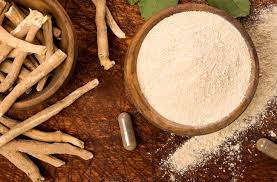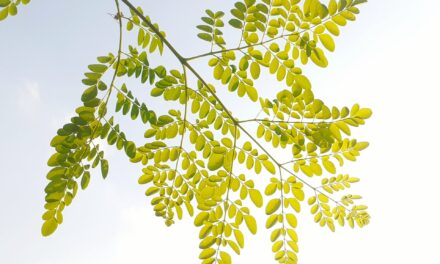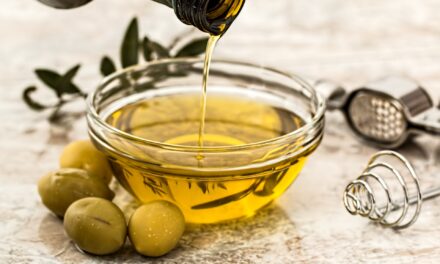
How to make kalonji powder at home

6 Health Benefits Kalonji: How to make kalonji powder at home-2023
Kalonji is a flowering plant native to Southern Europe, North Africa, and Southwest Asia that is also known as Nigella sativa, black seed, and black cumin.
Its seeds have long been utilized in herbal therapy to treat ailments ranging from diabetes to arthritis.
The herb has rapidly achieved popularity due to its potential weight reduction benefits.
Now a question arises:
Can we take kalonji daily?
Consume it on an empty stomach every day for enhanced brain function. It is quite beneficial for the elderly to boost their memory.
Nutritional Value of Kalonji:
Fiber, amino acids, iron, salt, calcium, and potassium are all abundant in kalonji seeds. They include vitamins, including vitamin A, vitamin B, and vitamin B1.
Kalonji oil also contains important fatty acids, vitamins, and minerals, which makes it better than other oils.
It contained approximately 17% protein, 26% carbohydrates, and 57% plant fats and oils.
So, without further ado, let’s get started.
Here are six scientifically proven health benefits of kalonji!
Benefits of kalonji:
Including Kalonji (Nigella sativa) in your daily diet helps boost your health in the following ways:
- Packed with antioxidants
- Help reduce weight loss
- Can aid in blood sugar regulation
- May have cancer properties
- May lower cholesterol levels
- Help prevent inflammation
1. Packed with Antioxidants:
Antioxidants are like compounds that neutralize harmful ketone groups (radicals) and protect oxidative damage to cells.
Studies claim that antioxidants can have some powerful effects on the heart and disease.
In fact, research indicates that antioxidants may protect against many types of chronic diseases including cancer, diabetes, heart disease, and obesity.
Various substances found in kalonji, such as thymoquinone, carvacrol, t-anethole, 4-terpineol, are responsible for its powerful antioxidant properties.
Now a question arises:
Is black seed an antioxidant?
The black seed (BS) contains at least one active lipid soluble antioxidant, thymoquinone.
Antioxidant molecules were found in both the water and lipid soluble fractions of the seed components after fractionation.
Summary
Experts suggest that kalonji contains powerful antioxidants which may help protect against various diseases.
However, more research is needed!
2. Help reduce weight loss:
The precise mechanism by which kalonji promotes weight loss is unknown.
It is claimed that the active compounds in kalonji seeds boost weight loss by influencing the expression of particular genes involved in appetite control and fat loss.
What’s more, a review with several participants found that kalonji powder and oil reduced body weight by an estimate of 4.6 pounds and waist circumference by 1.4 inches (3.5 cm) over 6–12 weeks as compared to placebo.
These effects were only noticeable when participants combined kalonji with diet and lifestyle changes, suggesting that herbal supplements alone are ineffective for weight loss.
Another review of studies with participants showed that kalonji powder and oil reduced body weight by 4 pounds (1.8 kg) but had no significant effect on waist circumference over 6–13 weeks, compared with placebo.
Thus, while kalonji is likely unhelpful for weight loss on its own, it may aid weight loss when combined with a low calorie diet.
Summary
More research is needed to validate these findings. Kalonji may help with weight loss when paired with a low-calorie diet.
3. Can aid in blood sugar regulation:
Controlling blood sugar levels in type 2 diabetes might be very helpful!
What is type 2 diabetes?
It’s like a chronic disease that affects the way your body uses and controls blood sugar levels.
Furthermore, high blood pressure may cause many symptoms, such as increased thirst, unintentional weight loss, fatigue, and difficulty concentrating.
One review of several studies suggests that kalonji supplementation improves fasting and average blood sugar levels.
Now a question arises:
How much kalonji should a diabetic take?
Kalonji seeds have a positive effect on the body’s glycemic control. Consuming 2 grams of seeds per day is recommended to help reduce blood sugar levels.
Summary
Research shows that supplementation with kalonji seeds helps reduce blood sugar levels.
However, more studies are needed!
4. May have anti-cancer properties:
Kalonji is rich in antioxidants, which help neutralize dangerous free radicals that may lead to diseases such as cancer.
Studies have found some impressive actions regarding the potential anticancer effects of kalonji and thymoquinone.
What is thymoquinone in black seed oil?
Thymoquinone is the main active compound in black seed oil, which comprises approximately 30% of the seed.
Many pharmacological actions of TQ, including anti-inflammatory and hypoglycemic, have been reported.
These seeds especially work against breast cancer, cervical cancer, lung cancer, and pancreatic cancer.
Moreover, there is no evidence for the anti-cancer effects of kalonji in humans. Also, studies are needed to examine whether kalonji has any cancer-fighting properties or not.
Summary
Several studies prove that kalonji and its components may display anti-cancer properties.
5. May lower cholesterol levels:
Many individuals think about cholesterol’s role in the human body. Well, cholesterol is a fat-like compound found throughout your body.
While people need cholesterol to make cells, high amounts can persist in their blood and increase the risk of heart disease.
Kalonji has been shown to be especially essential for lowering cholesterol levels.
One review of some studies found that supplementation of kalonji seeds helps lower bad (LDL) cholesterol levels and blood triglycerides.
Impressively, it also found that kalonji oil had better results than kalonji seed powder. However, only seed powder helps increase levels of good (HDL) cholesterol.
Now a question arises:
Can we drink kalonji water daily?
Kalonji is a powerful medicine for those who are suffering from asthma. Just mix Kalonji oil and honey in hot water and consume it daily!
Summary
Studies have shown that eating kalonji supplements can help lower both total and “bad” LDL cholesterol.
However, more research is required!
6. Help prevent inflammation:
Inflammation is basically a normal immune response that helps protect the body against injury and infection.
Further, chronic inflammation is known to lead to diseases such as cancer, diabetes, and heart disease.
Several studies have found that kalonji may have some powerful anti-inflammatory properties that can help treat various chronic inflammations. Kalonji is also well-known for relieving joint discomfort by lubricating the joints.
Even Ayurveda recommends the consumption of kalonji daily to help reduce inflammation.
Now a question arises:
What is the best time to eat kalonji?
Consumption of kalonji seeds daily on an empty stomach helps improve brain function and improves memory as well.
Summary
According to several studies, kalonji and its active components may help lower inflammatory symptoms.
However, more research is needed!
How to make kalonji powder at home:
Kalonji seed is a popular herb from Pakistan and India. It’s extremely bitter, and it’s used for both flavouring and medicinal purposes.
These seeds specifically provide potassium, sodium, and acids, all of which play an important role in the proper development of the human body.
But when it comes to consumption, powder might be the right choice. Therefore, in that case, kalonji powder may be a great source of protein for you!
So, it’s important to understand the creation of kalonji powder. This helps improve your memory and immunity.
Here are some easy steps to make kalonji powder at home!
- Powder the black seeds and the fenugreek seeds.
- Place the powder in the glass container.
- Mix in the coconut and castor oils.
- Now close the container and place it in the sunlight.
You need these ingredients?
- tablespoon black seeds.
- tablespoon of fenugreek seeds.
- 200 ml of coconut oil.
- 50 ml of castor oil.
That’s it!
The Bottom Line:
The seeds of the kalonji plant are well-known for their culinary and medicinal benefits.
Kalonji has long been used to treat a number of diseases and has been linked to several health benefits.
Many of them, however, have only been studied in test tubes or on animals. But still more research is needed to confirm it!
I hope this article is useful to everyone, especially those who are concerned about their health. Thank you for taking the time to read this article!








